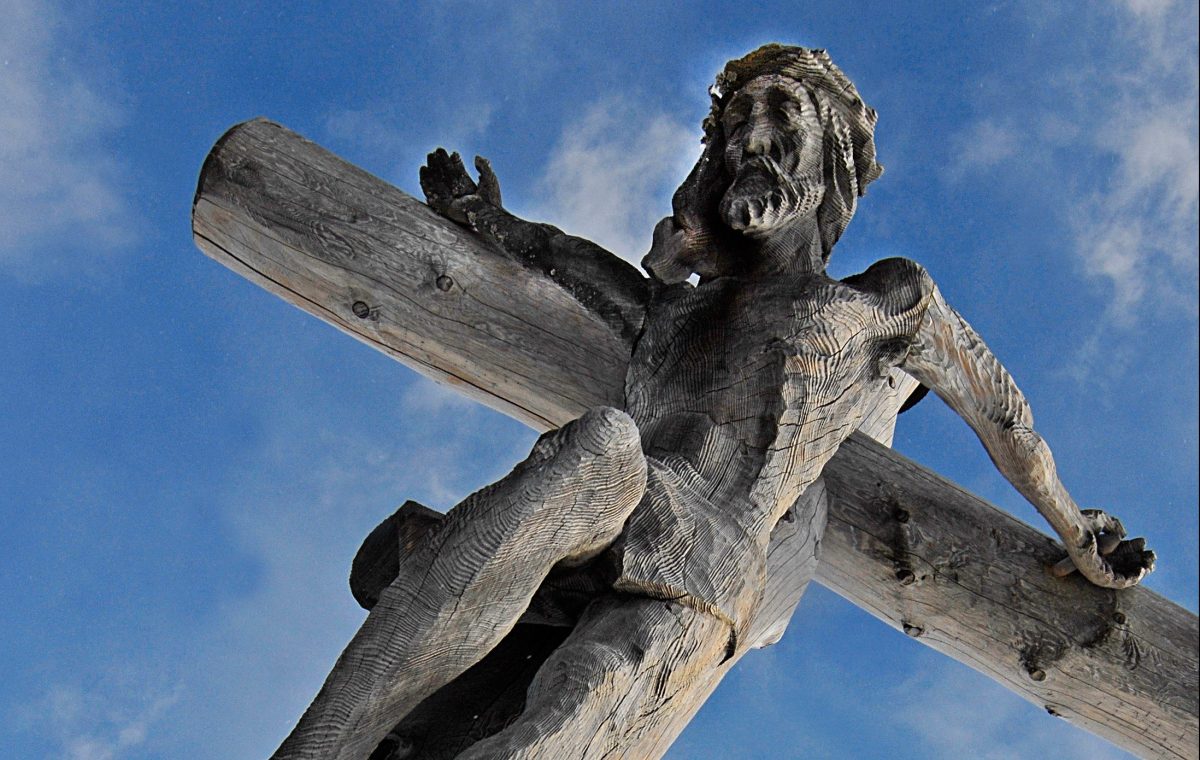We Can Forgive Even the Most Heinous Wrongs Done to Us
Is there a more difficult command given to us by Jesus than to forgive those who wrong us?
We know we are called to forgiveness; every time we recite the Lord’s Prayer, we express the plea, “Forgive us our trespasses, as we forgive those who trespass against us.” And we are not only called to an occasional act of forgiveness, but to forgiveness as a way of life! How else can we interpret Jesus’ answer when Peter asks how many times he should forgive. Peter offers seven as an answer; Jesus responds with seventy times seven, symbolic for infinity.
Yet, we so easily manage to come up with all sorts of justifications for our failing to forgive others their wrongs. And often, when we do forgive, it is a grudging or partial forgiveness: We mouth words of forgiveness, but still, in ways large and small, withhold something.
Forgiveness and the Mystery of God
Forgiveness may be the most difficult aspect of being a Christian disciple. Yet, I think Richard Rohr is right in saying, “If you don’t get forgiveness, you are missing the whole mystery of God. Without forgiveness, Rohr suggests, we are “still living in a world of meritocracy, of quid-pro-quo thinking, a world of performance and behavior at which none of us succeed, if we are honest.”
One of the views I have heard from some people (actually, I have heard it quite often) is the there are some wrongs that are just too heinous to be forgiven. That it is one thing to forgive in small matters, but that we can’t be expected to forgive really bad things done to us and our loved ones.
Forgiving Even Those . . .
That seems to me an impossible claim to sustain. Jesus, our ultimate model of forgiveness, forgave those who had a hand in his crucifixion. “Yeah, all well and good,” you might say, “He was God, after all.” True enough, but Acts gives us the example of Stephen, the first martyr, whose words are almost identical to those of Jesus on the cross, forgiving those who stoned him.
And we can find examples in more recent times. The Dalai Lama, for example, has forgiven the Chinese for the atrocities they have committed on the Tibetan people. Since China’s invasion of Tibet in 1949, over 1.2 million Tibetans have lost their lives due to massacre, execution, starvation and suicide. The Dalai Lama acknowledges that it would be easy to become angry and label the Chinese his enemy, but says, “that is not the Buddhist way” and that one should “forgive the person or persons who have committed atrocities against oneself and mankind.”
Closer to this side of the globe, Oscar Romero, in his homily at the funeral celebration of Father Alfonso Navarro Oviedo, who was assassinated in the church where he was pastor in El Salvador, reported that Father Navarro “died forgiving those who shot him.” Romero shared the testimony of the woman who cared for the priest as he lay dying. “She asked him what hurt, and Father responded: ‘I have no pain except the forgiveness that I want to give my assassins and to those who shot me and the only sorrow I have is sorrow for my sins. May the Lord forgive me!’ Then he began to pray.”
Forgiveness and the Need to Love
To give a more personal example, my friend Jeanne Bishop is one of my great models of forgiveness. Almost 30 years ago, her sister Nancy, her brother-in-law Richard and their unborn child were brutally murdered by a then high school aged boy named David Biro. Jeanne received the call about the murder as she was preparing to sing with the choir in her church for Palm Sunday services. The first words that came out of her mouth when she was brought to the police station after that phone call was, “I don’t want to hate anyone.”
Jeanne struggled for over two decades to understand why her family members were murdered. Yet, through her faith, she was able to bring herself to forgive Biro. And she didn’t only forgive him in her heart. Rather, she wrote to him telling him she forgave him, and she has visited with him in prison. And, reminiscent of the story of Jesus and the sinful woman at the home of Simon the Pharisee (Luke 7:36-50; “her many sins have been forgiven; hence, she has shown great love”), it was Jeanne’s letter to Biro telling him she had forgiven him that prompted him for the first time to admit his guilt in the murders. (He had, until that point, steadfastly maintained his innocence.)
Jeanne’s book about her experience of coming to forgive the murderer, Change of Heart, does not make light of the challenge of forgiveness for great sins. But she overcame that challenge. She said just before Easter in 2011, “Love and the love of God is the most powerful force on Earth and are eternal. This year as never before, I’m seeing that I not only need to love Nancy and Richard and the baby, I need to love the person who took their lives, love them the way God loves them. That’s so brand new to me and makes me see so many things differently. . . . I feel a stone has been rolled away from my heart.”
Jeanne’s was not a grudging forgiveness. Rather she illustrates a redemptive forgiveness, which manifests and shares divine grace. It is a forgiveness that is fostered by empathy and humility, both of which require letting go of a sharp divide between the wrongdoer and the victim. It recognizes that we all possess a dignity by virtue of our creation in God’s image.
With Fullness and Freedom of Heart
I often think of my friend Jeanne. And I ask myself, if she could forgive such a great wrong done against her and her family, how can I not forgive the much smaller wrongs I have experienced. Forgive a person who has wronged me without demanding that they have a “right” to my forgiveness. Forgive them without requiring anything on their part. Forgive them, not grudgingly, but with a fullness of heart.
Forgiveness is not to deny justice, but only to add the kind of mercy that we ourselves would want from others. And forgiveness does not mean to forget. Living with the memory of wrongs done can prevent us from their repetition. What forgiveness does is purify our own hearts and minds of hatred and vengeance and frees us.
And so, we pray, forgive us our trespasses, as we forgive those who trespass against us.

Learn more about Dr. Susan Stabile and her upcoming retreats, including Forgive Us As We Forgive Those, exploring questions like these:
- How do we deal with anger and hurt that hinder forgiveness?
- How do we separate forgiveness from our notions of justice and desert?
- What is the difference between forgiveness and reconciliation?
- What is the relationship between our acceptance of God’s forgiveness of us and our willingness to forgive others?






